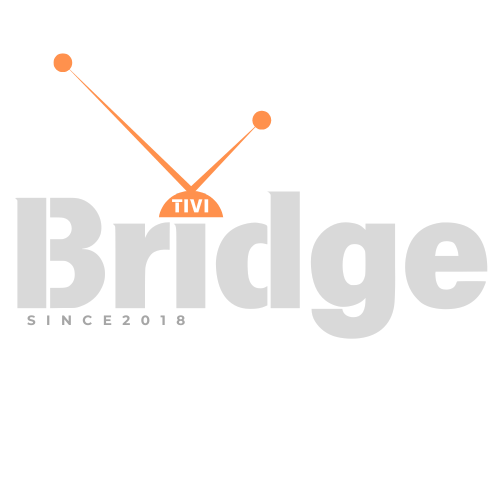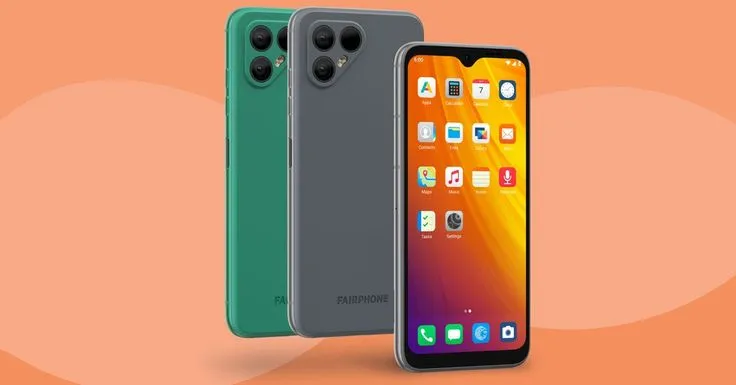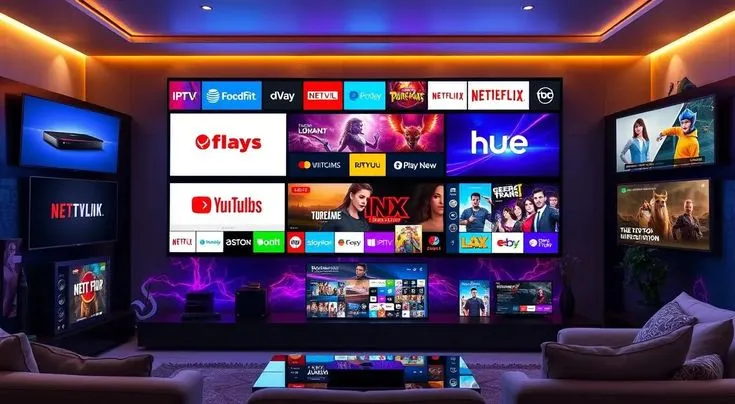What IPTV Means?
What IPTV Means ? – In today’s digital streaming landscape, you’ve likely encountered the term “IPTV” while searching for entertainment options. But what exactly does IPTV mean? Internet Protocol Television (IPTV) represents a revolutionary shift in how we consume television content, leveraging internet technology rather than traditional satellite or cable methods. This transformation is reshaping our viewing habits, offering unprecedented flexibility and content variety to viewers worldwide.
Whether you’re considering cutting the cord from conventional TV services or are simply curious about emerging entertainment technologies, understanding what IPTV means and how it functions is essential knowledge in our increasingly connected world. This comprehensive guide will demystify IPTV, exploring its technical foundations, diverse applications, and the remarkable benefits it brings to modern media consumption.
From its inception to its current evolution, we’ll dive deep into everything you need to know about IPTV services, including setup procedures, legal considerations, and future developments. By the end of this article, you’ll have mastered the concept of IPTV and be well-equipped to make informed decisions about incorporating this technology into your own entertainment ecosystem.
What Does IPTV Mean? The Fundamental Definition
The Technical Definition of IPTV
IPTV stands for Internet Protocol Television. At its core, IPTV means the delivery of television content over Internet Protocol (IP) networks rather than through traditional terrestrial broadcast, satellite signal, or cable television formats. This fundamental difference represents a significant departure from conventional television distribution methods.
Unlike traditional TV that sends all channels simultaneously to your receiver where you select what to watch, IPTV sends only the channel you request at any given moment. This streamlined approach creates a more efficient and personalized viewing experience.
How IPTV Differs From Traditional TV Broadcasting
To truly understand what IPTV means, we must contrast it with traditional television broadcasting systems:
| Feature | Traditional TV | IPTV |
|---|---|---|
| Signal Transmission | Broadcasts all channels simultaneously | Streams only requested content |
| Network Infrastructure | Specialized broadcast networks | Existing internet infrastructure |
| Geographical Limitations | Subject to regional broadcasting restrictions | Global accessibility (with proper rights) |
| Content Scheduling | Fixed programming schedules | On-demand viewing options |
| Interactive Capabilities | Limited or non-existent | Extensive interactive features |
Traditional television operates through one-way broadcast systems where signals are sent continuously to all connected devices. In contrast, IPTV establishes a two-way communication channel between the content provider and the viewer, enabling interactive features and personalized content delivery.
The Technical Architecture Behind IPTV
IPTV Network Infrastructure
The technological foundation of what IPTV means involves a sophisticated network infrastructure consisting of:
- Content Sources: Live TV feeds, video-on-demand servers, and stored media libraries
- Middleware Platform: The software that manages user authentication, billing, content protection, and the user interface
- Delivery Network: The internet infrastructure that transports the content, including specialized servers and content delivery networks (CDNs)
- End-User Devices: Smart TVs, set-top boxes, computers, smartphones, and tablets that decode and display the content
This architecture creates a robust system capable of handling millions of simultaneous streams while maintaining high quality and reliability.
How IPTV Content Delivery Works
When you select a channel or video on an IPTV service, the following processes occur:
- Your request travels through the internet to the IPTV provider’s servers
- The server verifies your subscription status and access rights
- The requested content is encoded and compressed for efficient transmission
- The content is broken into data packets and sent over the internet
- Your device receives, buffers, and reassembles these packets
- The content is decoded and displayed on your screen
This process happens in milliseconds, creating the illusion of instantaneous access to content. The efficiency of this system is what makes IPTV such a powerful and flexible television solution.
Major Types of IPTV Services
Video on Demand (VOD)
Video on Demand represents one of the most popular applications of what IPTV means in practical terms. VOD services maintain extensive libraries of content that users can access at any time. This incredible flexibility allows viewers to watch their favorite shows and movies whenever convenient, breaking free from the constraints of traditional programming schedules.
Examples of VOD services include Netflix, Amazon Prime Video, and Hulu, which have transformed how we consume media by putting vast content libraries at our fingertips.
Live IPTV Broadcasting
Live IPTV broadcasting delivers real-time content just like traditional television but through internet protocols. This aspect of what IPTV means is particularly valuable for:
- Sports events where viewers want the excitement of live action
- Breaking news coverage providing up-to-the-minute information
- Special events like awards shows or concerts
- Traditional TV channels that have adapted to IPTV delivery methods
The ability to stream live content over the internet has democratized broadcasting, allowing smaller content creators to reach global audiences without the massive infrastructure investments previously required.
Time-Shifted Media
Time-shifted media represents an innovative middle ground between live broadcasting and on-demand content. This feature allows viewers to:
- Pause live broadcasts
- Rewind to catch missed moments
- Start watching programs from the beginning even if they’re already in progress
- Access recently aired content without pre-recording it
This flexibility exemplifies what IPTV means for modern viewers – unprecedented control over when and how they watch their favorite content.
How to Access IPTV Services
IPTV-Compatible Devices
A wide range of devices can access IPTV services, making it exceedingly accessible to the average consumer:
- Smart TVs: Many modern televisions have built-in IPTV capabilities
- Set-top boxes: Dedicated devices like Apple TV, Roku, or Amazon Fire TV
- IPTV set-top boxes: Specialized devices designed specifically for IPTV services
- Computers: Through web browsers or dedicated applications
- Mobile devices: Smartphones and tablets via dedicated apps
- Gaming consoles: PlayStation and Xbox systems offer IPTV app support
This device flexibility is a crucial component of what IPTV means for accessibility, allowing viewers to watch content across multiple screens and environments.
Setting Up IPTV Service
Setting up an IPTV service typically involves these steps:
- Choose an IPTV service provider that offers content matching your interests
- Create an account and select a subscription plan
- Download the provider’s application on your preferred device
- Enter your subscription credentials to authenticate your account
- Ensure your internet connection meets the minimum requirements (typically 5-10 Mbps for HD content)
- Configure your display and audio settings for optimal viewing
The simplicity of this setup process compared to traditional cable or satellite installation represents another advantage of what IPTV means for consumer convenience.
Internet Requirements for Quality IPTV Experience
To fully appreciate what IPTV means in terms of viewing quality, you’ll need an adequate internet connection:
- Standard Definition (SD) content: 3-4 Mbps minimum
- High Definition (HD) content: 5-10 Mbps minimum
- 4K Ultra HD content: 25+ Mbps minimum
- Multiple simultaneous streams: Add 5-10 Mbps per additional stream
Beyond raw speed, connection stability and low latency are equally important for an uninterrupted viewing experience. Wired connections typically offer better performance than wireless for high-definition IPTV streaming.
The Advantages of IPTV
Flexibility and Convenience
One of the most compelling aspects of what IPTV means for consumers is unprecedented flexibility:
- Watch content on any compatible device, anywhere with internet access
- Start, pause, and resume watching across different devices
- Access content libraries spanning thousands of hours of entertainment
- Enjoy multi-screen viewing without additional hardware investments
- Customize channel lineups and content preferences
This remarkable convenience has fundamentally changed viewer expectations and behaviors, creating a more personalized television experience.
Cost Efficiency
IPTV often represents a more economical option compared to traditional cable or satellite services:
- Lower monthly subscription costs
- No need for specialized installation services
- Reduced or eliminated equipment rental fees
- Ability to pay only for desired content rather than bundled packages
- Elimination of contract requirements and early termination fees
These cost advantages have contributed significantly to the “cord-cutting” phenomenon where consumers abandon traditional TV services in favor of internet-based alternatives.
Enhanced Interactive Features
The interactive capabilities inherent in what IPTV means create opportunities for:
- Integrated program guides with detailed information and recommendations
- Interactive advertising with direct purchase options
- Content-related games and interactive applications
- Social media integration for sharing and commenting on shows
- Real-time polls and audience participation features
These interactive elements transform television from a passive to an engaging experience, creating deeper connections between viewers and content.
Looking for Premium Channels, Sports, and 4K Streaming?
Don’t miss out on these top-rated IPTV services – all at unbeatable prices!
🔥 TiviBridge – Ideal for sports lovers & international content
🎬 Iptvbridge – Perfect for live TV, movies & entertainment
💰 TiviPlanet – Best value for budget-conscious streamers
🚀 Start Your IPTV Business Today!
Get instant access to a powerful Reseller IPTV Panel with competitive pricing, advanced features, and 24/7 support. Join TiviBridge and grow your own IPTV empire with ease!
👉 Start your FREE trial now and elevate your viewing experience with seamless, high-quality streaming!
Legal Considerations and IPTV
Legal IPTV Services
Understanding what IPTV means in legal terms is essential for responsible consumption. Legal IPTV services include:
- Commercial streaming platforms: Netflix, Amazon Prime Video, Hulu, Disney+
- Network-operated services: CBS All Access, HBO Max, Peacock
- Live TV streaming services: YouTube TV, Sling TV, fuboTV
- Free, ad-supported platforms: Pluto TV, Tubi, Crackle
These services operate with proper licensing agreements and content rights, ensuring that creators and distributors receive fair compensation for their work.
Identifying Unauthorized IPTV Services
Not all IPTV providers operate legally. Warning signs of unauthorized services include:
- Unusually low subscription prices for accessing premium content
- Promises of “all channels” or “all premium content” for minimal cost
- Absence of official apps in recognized app stores
- Lack of clear information about the company’s location and ownership
- Requirements to use VPNs or specialized hardware to access content
Understanding what IPTV means in terms of legal rights is crucial to avoid inadvertently participating in copyright infringement.
Copyright and Broadcasting Rights
The legal framework surrounding IPTV involves complex copyright considerations:
- Content creators own the rights to their productions
- Distributors must negotiate licenses for broadcasting or streaming
- Geographical restrictions often apply to content distribution
- Rebroadcasting content without proper licenses violates copyright law
- Penalties for copyright infringement can be severe
These legal complexities highlight the importance of choosing reputable IPTV providers who respect intellectual property rights.
IPTV Market Growth and Future Trends
Current Market Size and Projections
The IPTV market demonstrates remarkable growth, reflecting the increasing importance of what IPTV means for the future of television:
- The global IPTV market was valued at approximately $40 billion in 2022
- Projected growth rates suggest the market will exceed $100 billion by 2027
- North America and Europe represent the largest current markets
- Asia-Pacific regions show the fastest growth rates
- Sports content drives significant subscription growth across markets
These impressive figures underscore the transformation of television consumption from traditional broadcast models to internet-based delivery systems.
Emerging Technologies in IPTV
The evolution of what IPTV means continues with several emerging technologies:
- AI-powered content recommendations that learn viewer preferences
- Blockchain-based subscription and payment systems for enhanced security
- 8K resolution streaming for unprecedented visual quality
- Advanced voice control for navigation and content discovery
- Augmented reality integration for interactive viewing experiences
These innovations promise to further enhance the IPTV viewing experience, creating even more compelling reasons for consumers to embrace this technology.
Integration with Smart Home Systems
The future of what IPTV means includes deeper integration with smart home ecosystems:
- Seamless control of IPTV through smart home hubs
- Automatic adjustment of lighting and temperature for optimal viewing
- Synchronized notifications with doorbell cameras and security systems
- Voice-controlled content selection through home assistants
- Multi-room synchronization for whole-home viewing experiences
This integration represents the convergence of entertainment and home automation, creating a more cohesive and convenient living environment.
Common Challenges and Solutions
Buffering and Streaming Quality Issues
Despite its advantages, IPTV can encounter performance challenges:
- Buffering: Content pausing to load additional data
- Pixelation: Visual artifacts caused by data compression or network issues
- Audio synchronization problems: Misalignment between audio and video
- Connection drops: Complete service interruptions due to network issues
- Resolution downgrading: Automatic quality reduction during network congestion
These issues represent temporary challenges in what IPTV means for reliable viewing, but several solutions exist:
- Upgrading internet connection speed and stability
- Using wired connections instead of Wi-Fi where possible
- Investing in higher-quality routers and networking equipment
- Limiting other network usage during IPTV streaming
- Using IPTV service provider apps that include adaptive streaming technology
Security Concerns
As with any internet-based service, IPTV presents certain security considerations:
- Potential vulnerability to man-in-the-middle attacks
- Risk of credential theft and account hijacking
- Exposure to malware through unauthorized IPTV applications
- Privacy concerns related to viewing habit tracking
- Vulnerability to distributed denial of service (DDoS) attacks
Understanding what IPTV means for security requires awareness of these risks and implementing protective measures like using strong passwords, enabling two-factor authentication, and maintaining updated software.
Compatibility Issues
IPTV compatibility challenges can occur across different devices and platforms:
- Older smart TVs may lack processing power for newer IPTV applications
- Some set-top boxes have limited app stores or outdated operating systems
- Mobile devices may offer reduced functionality compared to desktop versions
- Gaming consoles might not support all IPTV services
- International content may face regional restrictions
These compatibility issues highlight the importance of researching device support before committing to specific IPTV services.
Major IPTV Providers and Services
Global IPTV Services
Several major providers have defined what IPTV means on a global scale:
- Netflix: The streaming giant offers extensive libraries of original and licensed content
- Amazon Prime Video: Combines original content with add-on channel subscriptions
- Disney+: Features content from Disney, Pixar, Marvel, Star Wars, and National Geographic
- HBO Max: Provides access to HBO originals alongside extensive movie libraries
- Apple TV+: Focuses on high-quality original programming with big-name talent
These services have revolutionized global entertainment distribution, breaking down geographical barriers and creating truly international audience communities.
Regional IPTV Providers
Alongside global players, numerous regional services contribute to what IPTV means in local markets:
- Hulu (United States)
- BBC iPlayer (United Kingdom)
- Stan (Australia)
- Hotstar (India)
- Viu (Southeast Asia)
These regional providers often specialize in local content and language options that cater specifically to their target markets, preserving cultural relevance while embracing modern delivery methods.
Specialized Content IPTV Services
Niche services demonstrate what IPTV means for specialized content:
- DAZN: Focused exclusively on sports content
- Crunchyroll: Specializing in anime and manga
- Shudder: Dedicated to horror content
- BritBox: Featuring British television programming
- CuriosityStream: Concentrating on documentary and educational content
These specialized services highlight how IPTV enables content curation for specific interests, creating viable business models around niche audiences that traditional broadcasting could not efficiently serve.
IPTV vs. Other Streaming Technologies
IPTV vs. OTT (Over-The-Top) Services
Understanding what IPTV means requires distinguishing it from related technologies:
| Feature | IPTV | OTT |
|---|---|---|
| Network | Closed, managed networks | Open internet |
| Quality Control | Guaranteed service quality | Dependent on general internet conditions |
| Provider Control | Single provider manages network and content | Content providers separate from internet providers |
| Geographic Restrictions | Often limited to provider’s service area | Potentially global (with rights management) |
| Business Model | Usually subscription-based | Subscription, ad-supported, or hybrid models |
While these technologies share similarities, IPTV typically offers more consistent quality through managed networks, while OTT provides greater accessibility across devices and locations.
IPTV vs. Traditional Cable
The difference between IPTV and traditional cable illuminates key aspects of what IPTV means:
- Cable requires physical coaxial cable connections; IPTV needs only internet access
- Cable offers fixed channel packages; IPTV provides more customization options
- Cable requires proprietary equipment; IPTV works across multiple device types
- Cable operates on a broadcast model; IPTV uses a unicast or multicast approach
- Cable offers limited interactivity; IPTV enables extensive interactive features
These distinctions highlight IPTV’s advantages in flexibility, device compatibility, and interactive capabilities.
IPTV vs. Satellite Television
Comparing IPTV to satellite television reveals additional dimensions of what IPTV means:
- Satellite requires dish installation; IPTV needs no external hardware
- Satellite is vulnerable to weather interference; IPTV can be affected by internet issues
- Satellite typically requires long-term contracts; IPTV often offers month-to-month options
- Satellite provides limited on-demand options; IPTV excels in on-demand content
- Satellite covers wide geographic areas; IPTV requires reliable internet infrastructure
These comparisons underscore IPTV’s convenience and flexibility advantages, particularly in areas with reliable high-speed internet infrastructure.
Setting Up Your Own IPTV System
Hardware Requirements
Creating your own IPTV setup requires understanding what IPTV means in terms of hardware:
- Streaming device: Set-top box, smart TV, or computer
- Network equipment: Router with sufficient bandwidth capacity
- Storage device: Optional for recording capabilities
- Display device: Television or monitor
- Audio system: Built-in speakers or external audio equipment
The specific requirements depend on your intended use case, desired quality level, and existing technology ecosystem.
Software and Applications
The software side of what IPTV means for personal setups includes:
- IPTV service provider applications
- Media center software like Kodi or Plex
- IPTV players such as VLC or Perfect Player
- Electronic Program Guide (EPG) services
- Content management systems
These software components work together to create a seamless viewing experience across your chosen devices.
Optimizing Your IPTV Experience
To get the most out of what IPTV means for your entertainment:
- Prioritize network quality with wired connections where possible
- Invest in quality display technology to fully appreciate high-definition content
- Organize content libraries for efficient navigation
- Create viewing profiles for different household members
- Set up parental controls for family-friendly viewing
- Configure automatic updates to ensure security and feature improvements
These optimization steps can dramatically enhance your IPTV experience, minimizing technical frustrations and maximizing enjoyment.
FAQs About IPTV
What exactly does IPTV mean?
IPTV means Internet Protocol Television, a system where television services are delivered using the Internet Protocol over a network infrastructure, rather than through traditional terrestrial, satellite signal, or cable television formats.
Is IPTV legal to use?
Legal IPTV services that have proper licensing agreements to distribute content are completely legal. However, some unauthorized IPTV services stream content without proper rights, which violates copyright laws. Always research providers carefully.
How much internet speed do I need for IPTV?
For standard definition content, you need at least 3-4 Mbps. HD content requires 5-10 Mbps, while 4K Ultra HD needs 25+ Mbps. For multiple simultaneous streams, add 5-10 Mbps per additional stream.
Can I watch regular TV channels on IPTV?
Yes, many IPTV services offer live channels that mirror traditional television broadcasting, including local, national, and international channels, depending on the service provider and your subscription package.
What devices can I use to watch IPTV?
IPTV can be accessed through smart TVs, set-top boxes (like Apple TV, Roku, or Amazon Fire TV), specialized IPTV boxes, computers, smartphones, tablets, and gaming consoles.
How does IPTV differ from regular streaming services?
While both use internet protocols, IPTV typically offers live television channels alongside on-demand content and often runs on managed, private networks for quality control. Standard streaming services primarily focus on on-demand content over the open internet.
Is a VPN necessary for using IPTV?
For legal IPTV services, a VPN is not necessary but may help with connection quality or accessing geo-restricted content when traveling. Be wary of services that require VPN use as a standard practice, as this may indicate unauthorized content distribution.
Conclusion
Understanding what IPTV means opens the door to a revolutionary approach to television consumption. This technology has transformed passive viewers into active participants who control not just what they watch, but when, where, and how they watch it. The flexibility, cost-efficiency, and enhanced features of IPTV represent a significant improvement over traditional television delivery systems.
As internet infrastructure continues to improve globally, IPTV will likely become the dominant method of television content distribution, eventually replacing conventional cable and satellite systems entirely. The ongoing evolution of what IPTV means will incorporate artificial intelligence, virtual reality, and ever-higher resolution standards, creating increasingly immersive and personalized viewing experiences.
Whether you’re considering subscribing to an IPTV service, setting up your own system, or simply staying informed about emerging entertainment technologies, the knowledge you’ve gained about what IPTV means provides a valuable foundation for navigating this rapidly evolving landscape.
Call to Action
Have you experienced the benefits of IPTV in your own entertainment setup? Share your experiences in the comments below! If you found this guide helpful, consider sharing it with friends and family who might be curious about making the switch from traditional television services. For more in-depth guides on digital entertainment technologies, subscribe to our newsletter and never miss an update.











